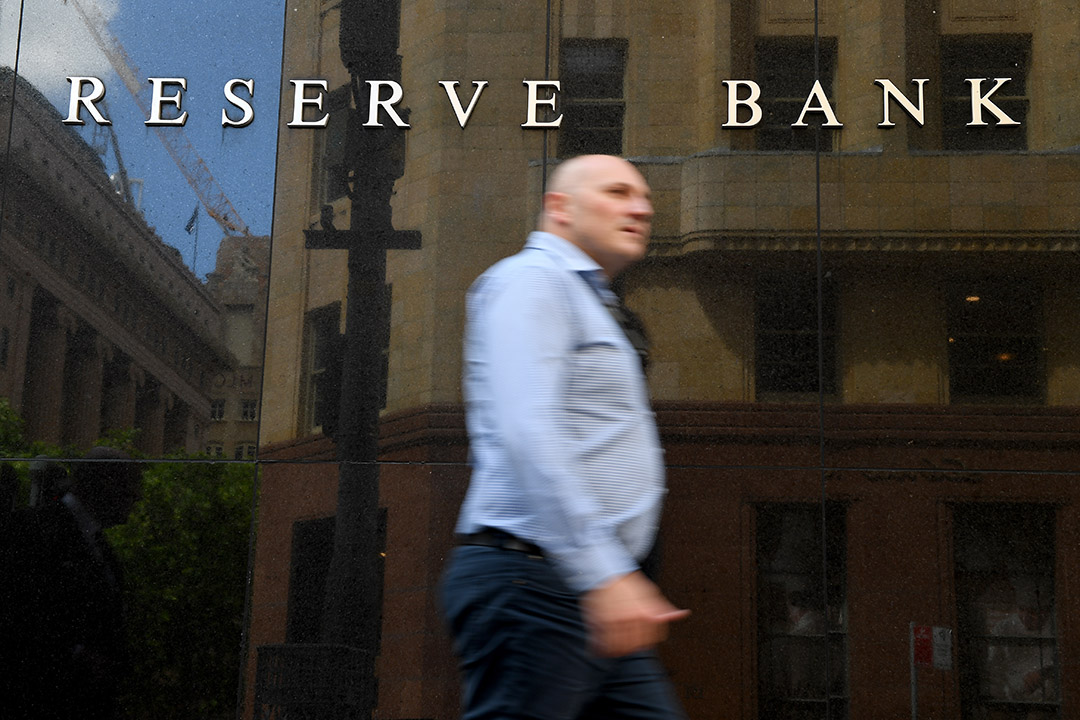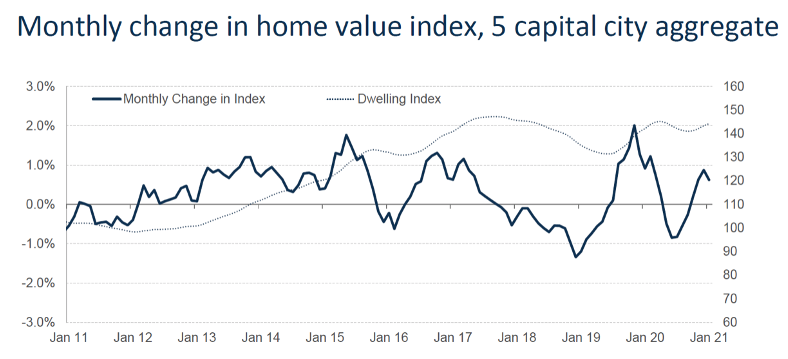

The Reserve Bank will have its first interest rate decision of the year today as our economy recovers faster from the Coronavirus recession than equivalent Western countries. And with house prices literally going through the roof (pun intended), are home loan borrowers looking at an interest rate rise?
That could be a question anyone heavily borrowed or trying to borrow for the first time might be worried about. But let me put you out of your misery — there will be no rate rise today!
In fact, there might not be one next year either. But I suspect 2023 will be the year of rate rises. And even though I have borrowings, I damn well hope that interest rates start rising by 2023.
Why? Am I a mentally disturbed glutton for punishment?
Nope, I just know that if interest rates aren’t rising by 2023, then the economic stimulus has failed to create a big surge in business and consumer activity. And if this is the case, we’re all in a pickle.
This week the Prime Minister, Scott Morrison, said there are “no blank cheques” and his Treasurer will have to stop the life support payments to workers, business and the economy generally. Recall that JobKeeper ends in March and that’s when the built-up momentum of the economy needs to start doing its stuff to create jobs and encourage businesses to invest. And we need to see Australians start getting greater income, saving less and spending a whole lot more.
This is what you see in a fast growing economy but you might be asking: “How can we spend more when retail sales at the likes of Harvey Norman and JBHi-Fi have been booming?”
That’s right. And a part of that is because we can’t travel overseas or even across many state borders, so we’ve bought things and renovated our homes. But we’ve found it hard to spend on services.
What kind of services?
Try travel, massage, hair and beauty, restaurants, parties and so on.
How important are services to our economic growth?
In 2019, agriculture was 2.09% of Gross Domestic Product (GDP) but services were, wait for it, 66.15%!
And it has been because we can’t spend on services that we’ve ended up saving a lot more than usual. Right now I’m thinking about my Greek friends who go back to Greece every year and could easily spend $20,000 on a family holiday, which for two years has been left in their bank accounts.
Sure, they might have fixed up their garden and even bought a new car on lease payments, but they could easily have money left over in their bank accounts for the time when they can actually go back to their beloved Greece.
When they’re able to do that, our economy and the world economy will be back on the path towards normalcy, and we should see big economic growth rates. Australia is expected to grow at 4.5% or so next year (compared to an average around 2-3%) and there’s a believable argument that we and the world economy could see a Roaring 20s rerun of the 20th century, this century. All this stimulus spending, plus, hopefully, a successful vaccination experience with interest rates so low, should lead to great economic growth and powerful job creation, which has to be terrific for demand for stuff (goods and services) and suggests that a real boom for economies is on the cards.
Of course, this is the optimistic and very possible scenario. The RBA won’t want to spook everyone who’s borrowed and have helped the economic recovery, by raising interest rates today or anytime soon.
The RBA Governor, Dr Phil Lowe knows that the jobs market has improved faster than expected, but he also knows that we’re still a long way from full employment. Unemployment is 6.8%. We’d have to be in the low 5% or high 4% region before the big bank would think our job market is approaching ‘full employment’.
And this will be harder to reach any time soon, with JobKeeper ending in March, which, as AMP Capital’s Shane Oliver said, “means jobs growth is likely to slow a bit in the months ahead.”
Also the RBA isn’t happy about the rising Aussie dollar as this slows economic growth because it makes our exports dearer and can encourage the buying of more imports at the expense of local purchases. Need an example? Well, a higher Aussie dollar makes Bali cheaper compared to a holiday in Noosa.
Every word Dr Phil puts out there today will be analysed by economists and the media. What he doesn’t say (the between-the-line ‘stuff’) will also be important.
I think he won’t do or say anything that will hurt one of the best economic recoveries in the world, despite a surprisingly big rebound in house prices. If there’s anything that might make some experts predict interest rates rising before 2023, it would be if house prices do rise by 30% over the three years from mid-2020, which the RBA says is on the cards!
RBA-watching experts argue that Dr Phil will want to keep interest rates as low as he can for as long as he can to ensure we grow strongly. But he could easily have a chat to the Australian Prudential Regulation Authority (APRA), which like the Soup Nazi in that Seinfeld episode, can say instruct banks to tell borrowers: “No more loans for you!”
The last time when APRA did that in 2015, it led not only to less loans but a fall in house prices from 2016 until after the May 2019 federal election. The chart below shows the house price falls from 2016 to 2019 and then the short collapse when the Coronavirus hit.
And the gains have continued, with us finding out that the latest house price changes have taken us to new highs.
“A 0.9 per cent rise in house prices last month has taken Australian housing values to a record high, exceeding the peak reached in 2017,” anc.net.au reported yesterday. “CoreLogic's latest figures show national average property prices are now 1 per cent higher than before the COVID-19 pandemic and 0.7 per cent above the previous September 2017 peak.”

Dr Phil, the PM and his Treasurer Josh Frydenberg know they have an economy heading in the right direction, but any false move and the prize of being a fast-growing economy could be lost. That means Phil won’t raise rates any time soon. The PM will get vaccinations happening ASAP and Josh will make sure the end of JobKeeper doesn’t create a fiscal cliff that we and the economy tumbles over. What’s going on in Europe, the US, the UK and Japan is a powerful incentive for avoiding dumb decisions.